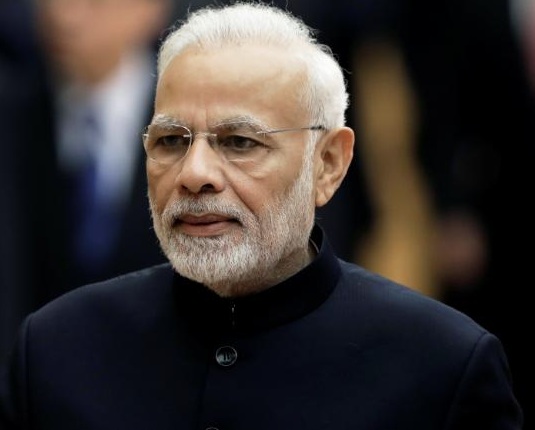In the long run, stability depends on Pakistan ending its indefensible support for terrorism. Its prime minister, Imran Khan, is urging dialogue and, in a promising gesture, was due to release India’s pilot—presumably with the approval of the army chief, who calls the shots on matters of security.
從長遠來看,穩定取決于巴基斯坦結束對恐怖主義的站不住腳的支持。印度總理伊姆蘭·汗以充滿希望的姿態敦促雙方進行對話,并將釋放印度飛行員。這大概是得到了負責在安全問題上發號施令的軍方首腦的批準。
But in the short run Mr Modi shares the responsibility to stop a disastrous escalation. Because he faces an election in April, he faces the hardest and most consequential calculations. They could come to define his premiership.
但短期內莫迪有責任阻止災難性的局勢升級。因為他將在4月迎來大選,要面對最艱難同時也是舉足輕重的選票。而這些選票能夠決定他的去留。
Mr Modi has always presented himself as a bold and resolute military leader, who does not shrink from confronting Pakistan’s provocations. He has taken to repeating a catchphrase from the film “Uri”, which portrays a commando raid he ordered against Pakistan in 2016 in response to a previous terrorist attack as a moment of chin-jutting grit. The all-too-plausible fear is that his own tendency to swagger, along with domestic political pressures, will spur him further down the spiral towards war.
莫迪一直表現為一勇敢果決的軍事領袖,面對巴基斯坦的挑釁,他毫不退縮。他開始重復電影《Uri》中的一句口頭禪,這部電影再現了他在2016年下令對巴基斯坦發動突擊,以回應此前的一次恐怖襲擊,以體現他的勇毅。最讓人擔心的是,他自己的狂妄自大,加上國內的政治壓力,將促使他進一步滑向戰爭的漩渦。

The ambiguity of Mr Modi’s beliefs only deepens the danger. He campaigned at the election in 2014 as a moderniser, who would bring jobs and prosperity to India. But, his critics charge, all his talk of development and reform is simply the figleaf for a lifelong commitment to a divisive Hindu-nationalist agenda.
莫迪信仰的模糊性只會加深危險。在2014年的大選中,他以一名將為印度帶來就業和繁榮的現代化人士的身份參加競選。但是,他的批評者指責,他所有關于發展和改革的言論,只不過是他畢生致力于印度教民族主義分裂議程的遮羞布。
Over the past five years Mr Modi has lived up neither to the hype nor to the dire warnings. The economy has grown strongly under his leadership, by around 7% a year. He has brought about reforms his predecessors had promised but never delivered, such as a nationwide goods-and-services tax (GST).
過去5年,人們對莫迪的政治表現褒貶不一。在他的領導下,經濟以每年7%的速度強勁增長。他推行了上任承諾但從未兌現的改革,比如在全國范圍內征收商品及服務稅。
But unemployment has actually risen during Mr Modi’s tenure, according to leaked data that his government has been accused of trying to suppress. The GST was needlessly complex and costly to administer. Other pressing reforms have fallen by the wayside. India’s banks are still largely in state hands, still prone to lend to the well-connected. And as the election has drawn closer, Mr Modi has resorted to politically expedient policies that are likely to harm the economy. His government hounded the boss of the central bank out of office for keeping interest rates high, appointing a replacement who promptly cut them. And it has unveiled draft rules that would protect domestic e-commerce firms from competition from retailers such as Amazon.
但據泄露的數據顯示,在莫迪任期內,失業率實際上有所上升。莫迪政府被控試圖壓制這些數據。商品和服務稅繁復且管理成本高。其他緊迫的改革已被擱置一旁。印度的銀行很大程度上仍掌握在政府手中,仍傾向于像關系戶放貸。隨著大選臨近,莫迪采取了可能損害經濟的政治權宜之計。其政府將央行行長趕出了辦公室,原因是他將利率維持在高位,并任命了一位繼任者,后者立即降低了利率。此外,政府還公布了保護國內電子商務公司免受亞馬遜等零售商競爭的規則草案。
譯文由可可原創,僅供學習交流使用,未經許可請勿轉載。












